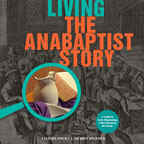| DFD |
||||||
|
In
its most basic sense, the
word Anabaptist means “one who is baptized again.” In the sixteenth
century, this name was given to individuals who chose to be baptized as
adults after having been baptized as infants. Baptism marked the choice
to leave the established state church and join a new church of adult
believers. In the twenty-first century, Anabaptism has taken on an identity that means more than simply baptism as an adult. Anabaptists today hold dear the values of nonviolence and pacifism, the example of Jesus as a life model, and a conscious effort to live within a faith community. Many (but not all) Anabaptist leaders of the the sixteenth century also cherished these values, and it is this peaceful, Christ-centered legacy that carries forward into the twenty-first century. It is significant to note that the names held by Anabaptist denominations today come from our pacifist ancestors: Mennonites (Menno Simons), Hutterites (Jacob Hutter), and Amish (Jakob Ammann, from the seventeenth century). As well, the first minister of the Brethren movement (Alexander Mack) carried the conviction of nonviolence. The stories contained within these pages are not the property of a single group of people, determined by citizenship or family name. Rather, the stories of the first Anabaptists belong to all Anabaptist communities of the present time. For indeed, that is a hallmark of Anabaptism—that an adult believer chooses to enter a faith community, and chooses to identify as a follower of Christ. Anyone can claim the Anabaptist story. Therefore, we invite you to explore the following pages and consider where you would like to place yourself in the future we are creating today. |
||||||





